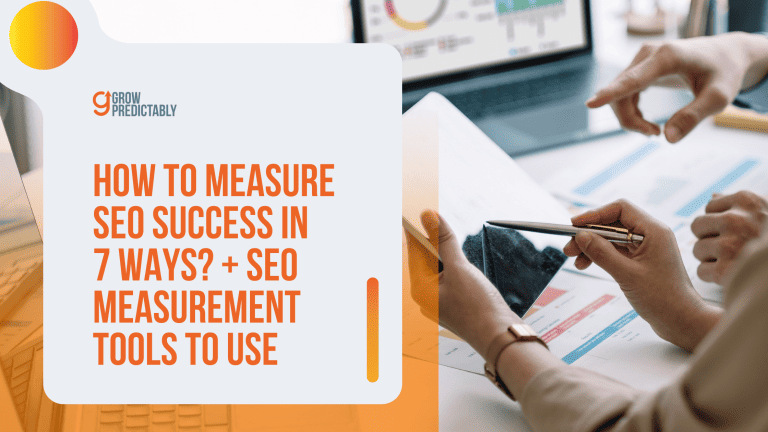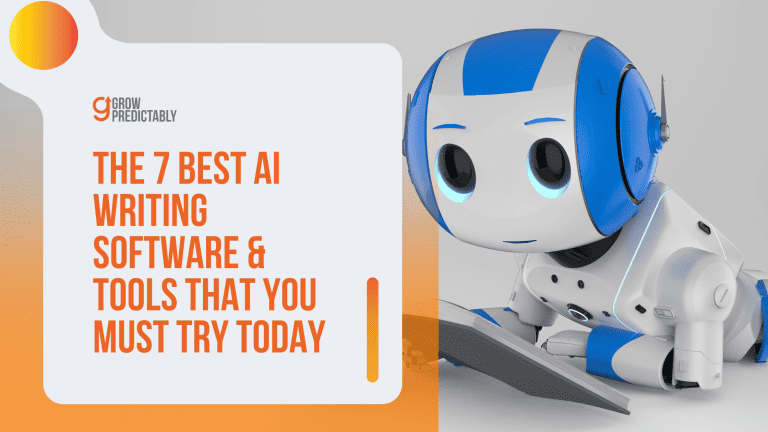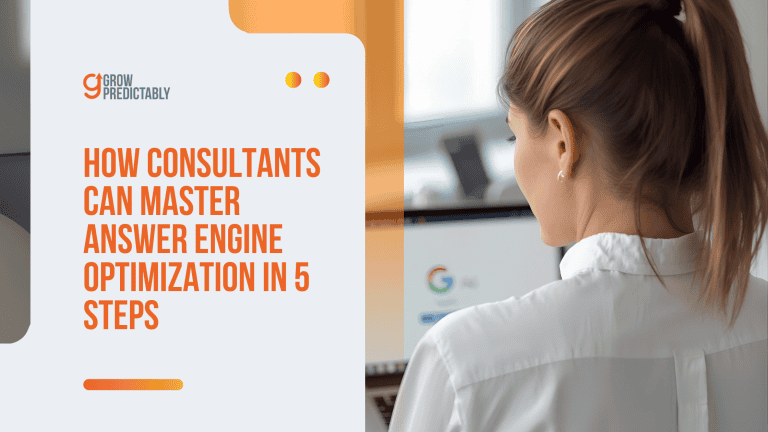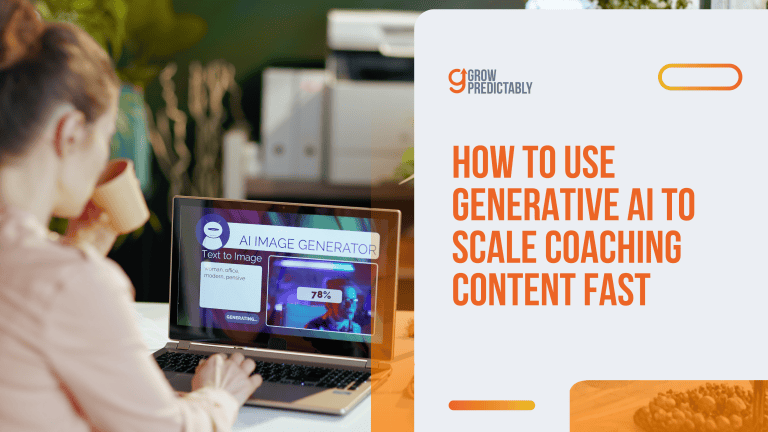7 Best Practices for Integrating AI into SEO Strategy Without Penalties
You’re here because, like many of us, you’ve heard the whispers about integrating AI into SEO, and you’re curious.
You’re not alone.
These are two buzzwords that have been circling around for a while.
SEO, we’ve got a fair grasp on it.
It’s part of the routine: keywords here, meta descriptions there.
Keep Google happy, and life’s good, correct?
Now, let’s throw AI into the mix, and things suddenly get complicated.
AI’s been cropping up everywhere, revolutionizing how things are done.
There’s potential, sure, but with it comes a boatload of questions, concerns, and the looming fear of penalties that could yank your precious ranking from beneath you.
In SEO, taking shortcuts can lead to penalties, especially when integrating new technologies like AI.
The challenge is real, isn’t it? There’s this desire to stay on top of the game, to use every bit of emerging tech you possibly can.
But there’s also the fear of stepping on a landmine and undoing much of the hard work you’ve done so far.
How about we unmask this mystery and comb through the real deal of integrating AI into SEO?
How can we tread this new path without stumbling into pitfalls?
Let’s dive in and figure this out.
Understanding AI and Its Role in SEO
With AI, you can leverage Machine Learning and Natural Language Processing (NLP).
Machine Learning helps computers learn from information and improve tasks over time.
NLP helps computers understand and use human language, like the language and tone used when you talk or write.
These technologies are like superpowers for computers, enabling them to talk to us like friends, understand what pictures show, etc.
So, what’s so exciting about AI integration in SEO?
SEO is about making your website appear higher when people search online. AI steps in by making this process smarter and faster. It helps search engines understand your website to match it with what people are looking for.
But AI doesn’t just do things randomly. AI utilizes efficient ways to market you using SEO, content, research insights, and others.
Then, it comes up with strategies like tailor-made suits that fit perfectly for you.
AI technology will help you determine what keywords to use, what content to create, what to fix in your web pages, and, ultimately, how to keep your website in its best form for search engines.
The Consequences of Poor SEO Practices
Have you ever thrown a dart without aiming? That’s what poor SEO practices feel like.
You’re tossing words into the void, sometimes over-tossing on purpose, hoping to hit the bullseye. But without the proper guidance, you’re more likely to hit the wall.
In search engine optimization, that wall is made up of penalties that can knock your website off the search engine radar.
What’s so bad about these SEO penalties?
Well, imagine running a marathon with weights on your feet. That’s what these penalties do to your website.
They drag you down, slowing your climb to the top of the search results, and they can also bar your web pages from showing up on search queries.
COMMON SEO PENALTIES:
- Algorithmic Penalties: These are automatic penalties applied by search engine algorithms when they detect guideline violations. Examples include Google’s Panda, Penguin, and Hummingbird updates, which target low-quality content, spammy links, and keyword stuffing.
- Manual Penalties: These are imposed by human reviewers on search engines when they find a website violating guidelines. Common reasons for manual penalties include unnatural links, thin or duplicate content, and spammy behavior.
- Unnatural Links Penalty: Search engines penalize websites with suspicious or manipulative backlink profiles. This could be due to buying links, participating in link schemes, or having too many low-quality links.
- Thin Content Penalty: If a website has a lot of pages with low-quality or minimal content, it can be penalized. Content should provide value and be relevant to users.
- Keyword Stuffing Penalty: Overloading web pages with keywords in an attempt to manipulate search rankings can lead to penalties. Content should read naturally and provide a good user experience.
- Duplicate Content Penalty: Using identical or substantially similar content across multiple pages or websites can result in penalties. Each page should offer unique value.
- Cloaking Penalty: Cloaking involves showing different content to search engines and users. This deceptive practice can lead to penalties.
- User Experience Penalties: Search engines value a good user experience. Slow page loading times, intrusive pop-ups, and mobile-unfriendly designs can result in lower rankings.
- Hacked Content Penalty: If a website gets hacked and serves malicious content, search engines might penalize it for protecting users.
- Spammy Structured Markup Penalty: Incorrect or misleading use of structured data markup can lead to penalties. Markup should accurately represent the content.
- Over-Optimization Penalty: Over-optimizing on-page elements like titles, meta tags, and headers can raise suspicions of manipulation.
- Hidden Text or Links Penalty: Trying to hide text or links from users but making them visible to search engines is a violation that can lead to penalties.
Scary. But don’t worry! It’s not all doom and gloom.
Yes, these penalties can hurt your ranking and traffic.
Yes, they can bury your website under a mountain of competitors.
But remember, every cloud has a silver lining. This is where artificial intelligence comes in!
7 Best Practices When Integrating AI into an SEO Strategy – Rank Faster and Avoid Penalties
AI and SEO are capable of making your pages wonder. When used together, they can leverage powerful strategies that increase visibility and generate more leads.
Here are seven best practices you need to focus on (instead of black hat SEO tactics) when raking with AI:
1. Leverage AI for Keyword Research
Finding the right words to make your website pop up on search engines is a big deal! That’s where AI comes in, making this task much easier.
AI studies what people type into search bars to find stuff online. It’s like a detective figuring out what’s hot and trending.
Instead of scratching your head over a long list of words, AI sniffs out the ones with real power. These are the words that people are actually typing, the ones that can shoot your site right to the top.
But AI doesn’t stop at finding words; it understands what those words mean to people. It gets what they’re looking for, helping you create content that’s like a perfect fit for their needs.
With AI tools as your keyword buddy, you’re not just throwing words around – you’re sending out a powerful message.
Your website attracts the right audience because it speaks their language.
So, how does AI do this?
- Comprehensive Analysis: AI tools can analyze vast amounts of data from search engines and websites to identify trends and popular search queries. This helps you understand what your target audience is searching for.
- Keyword Suggestions: AI can generate a list of keyword suggestions related to your topic. These suggestions can include variations of your main keywords and long-tail keywords that are more specific.
- Search Volume and Competition: AI tools provide insights into the search volume (how often a keyword is searched) and competition (how many other websites are targeting the same keyword). This information helps you choose keywords with a good balance of search traffic and competition.
- User Intent: AI can predict the intent behind search queries, helping you choose keywords that match what users seek. This ensures that your AI-generated content aligns with their needs.
2. Utilize AI for Content Optimization
Here’s the scoop: search engines want to send people to content that’s super helpful and relevant.
Visitors want content that answers their questions and keeps them glued.
AI helps you hit both targets. It suggests changes that make your content clearer, catchier, and more engaging – like turning a regular song into a chart-topping hit.

Have you ever read something that felt like a warm hug? That’s the power of well-optimized content!
And AI-generated content can help you do just that.
AI helps you understand what your readers want and crafts your content to match.
It’s like writing a love letter to your audience – they’ll keep coming back for more.
With AI’s help, your content becomes a magnet for readers, keeping them engaged from the first word to the last.
3. Solidify Your Brand Voice with AI
Every brand has a personality, just like people do. It’s the way you talk, the words you use, and the vibe you give off.
AI can learn all about your brand’s personality, and you don’t have to worry about getting stuck on phrasing or sounding robotic.
AI handles the nitty-gritty stuff so you can focus on the big ideas that make your brand unique.
Remember that time you shared a funny meme with a friend? The content creation process is kind of like that. It’s not just about the words; it’s about making a connection.
Jasper AI’s Brand Voice feature combines the power of artificial intelligence with a brand’s unique tone and style to create AI-generated content that is always on-brand.
AI knows what types of content tickle people’s funny bones or touch their hearts. And this can help you craft content that resonates with your audience on a deeper level.
This is something that the most experienced bloggers do on the regular, but with AI, you can sound like the most personable brand on the web, even without breaking a sweat.
So whether you’re writing a blog, sending an email, or posting on social media, your brand sounds like what you want it to sound like.
Jasper AI is an example of a tool that does this on such a high level.
But how does Jasper do this?
- Understand Your Brand Personality: Define what your brand stands for, its values, and its personality. Is your brand serious or playful? Professional or casual? This will guide the tone of voice that you’ll want to use in your content.
- Customize Your Brand Voice: With Jasper’s Brand Voice feature, you can customize the AI’s writing style to match your brand voice. You can instruct Jasper to write in a certain tone (e.g., “friendly and informal” or “professional and authoritative”), and it will produce content that aligns with those guidelines.
- Consistency Across All Content: Use Jasper’s Brand Voice feature to ensure a consistent tone of voice across all your AI-generated content. Whether it’s blog posts, social media updates, or email newsletters, Jasper can help maintain the same tone and style, strengthening your brand identity.
- Save Time and Effort: Crafting a consistent brand voice manually can be time-consuming and require a lot of effort. With Jasper’s Brand Voice feature, you can automate this process without compromising the quality and consistency of your content.
4. Use AI for Link Building Analysis
Backlinks are like votes of confidence from other websites.
When they link to your site, they say, “Hey, this place is worth checking out!”
And search engines use this as the number one factor when ranking a page.
The more reputable sites that link to you, the more search engines see your site as trustworthy and valuable.
AI dives into these links like a detective, figuring out which ones are golden and which might be a little… meh.
Search engine algorithms have rules, and breaking them can lead to penalties. AI keeps you on the right track. It checks if your links follow search engine guidelines, avoiding potential trouble.
It’s not about having a ton of links; it’s about having the right ones. AI integration helps you focus on quality links that come from reputable websites. It’s like having a treasure map that leads you to the best loot.
5. Use the Right AI Tools to Not Sound “AI Generic”
Remember those emails you received that start with “Dear [Name]” and those blog posts on the web that all sounded like just one person wrote them?
That’s the risk with AI – it can sometimes make things sound a bit… generic. But fear not! There’s a way to make your content shine with personality.
With the Memory feature inside Brand Voice, users can teach Jasper the details of their products and services, target audiences, and unique information about their company.
Have you ever heard someone talk about something they love? Their eyes light up, and you can feel their excitement. That’s the kind of energy you want in your content.
It’s all about balance. AI tools and your personal touch create a powerful combo.
AI lays the groundwork, and you add the finishing touches that make it uniquely yours.
Jasper: Let Jasper Write Your Marketing Copy for Free
Jasper AI is an AI writing tool designed to generate marketing copy, such as blog posts, product descriptions, company bios, ad copy, and social media captions using machine learning algorithms.
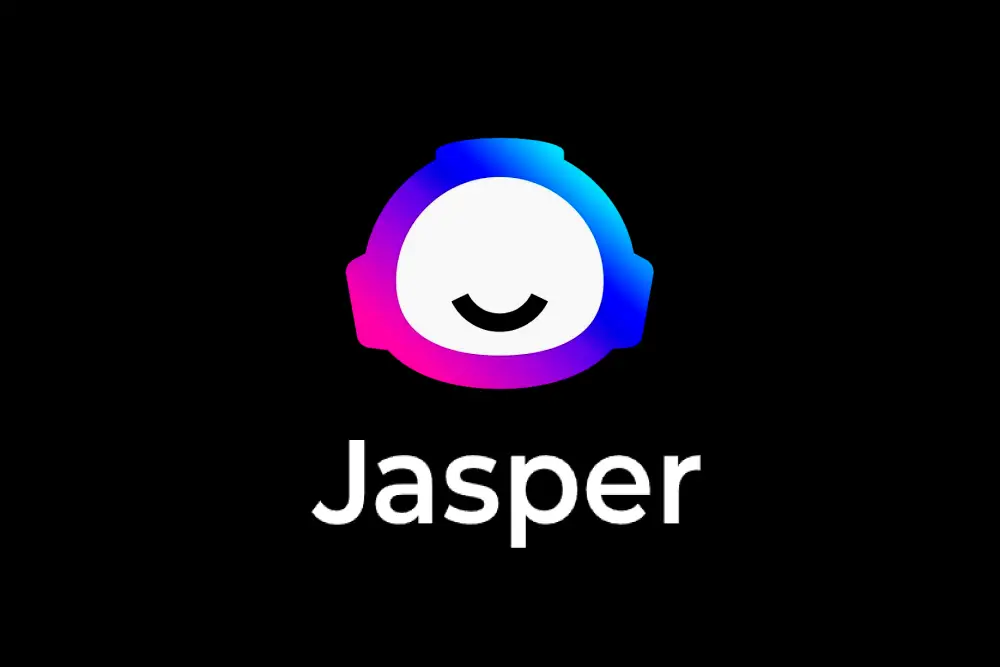
6. Use AI to Stay Within Search Engine Guidelines
Search engine guidelines are the rulebook that search engines like Google follow.
These rules ensure that websites provide a good experience for users and don’t try to cheat their way to the top.
Search engines use algorithms – fancy math formulas – to help rank the millions of pages on the internet. But algorithms can be tricky. Getting a penalty for breaking search engine rules is like getting a time-out in the game.
With AI integration into your SEO efforts, you get early warnings. It’s like the Google referee saying, “Hey, you’re stepping close to the line.” So you can fix things before you get into serious trouble.
7. Keep SEO Practices Updated with AI
Just like you wouldn’t want to show up to a party in old-fashioned clothes (unless the theme is 90s), you don’t want your website to look outdated.
AI technology can analyze data and spot trends, helping you see what’s coming next. This means you can tweak your SEO strategy before the trend hits, so you’re always one step ahead.
SEO is not just about search engines; it’s also about improving user experience. If you neglect on-page SEO factors such as site speed, mobile-friendliness, and easy navigation, users may leave your site quickly, leading to a higher bounce rate.
Search engines update their algorithms – the secret formulas they use to rank websites – quite often. What works today might not work tomorrow.
Sometimes, updates can be a headache. But with AI-powered tools, it’s like having a personal assistant who handles the heavy lifting.
They suggest changes, highlight areas needing attention, and keep your strategy current without stress.
AI technology is your backstage pass to stay in the loop, even when SEO trends do a complete 180.
FAQs
Conclusion
There you have it! We explored seven fantastic practices that let AI take the lead while you stay in control. It helps you avoid penalties, stay updated with the latest trends, and present your brand’s unique voice to the world.
So, here’s the deal: with AI, your SEO strategy isn’t just a strategy; it’s a dynamic, evolving masterpiece.
By following these practices, you’re not just optimizing your website – you’re future-proofing it. You’re telling search engines, “Hey, I’m here and doing it right!”
Now, it’s your turn. Leap and integrate AI into your SEO efforts. Embrace the potential, experiment, and see the magic unfold.
Whether you’re a small business owner, a content creator, or a seasoned SEO expert, AI is your ally, ready to take your digital presence to new heights.

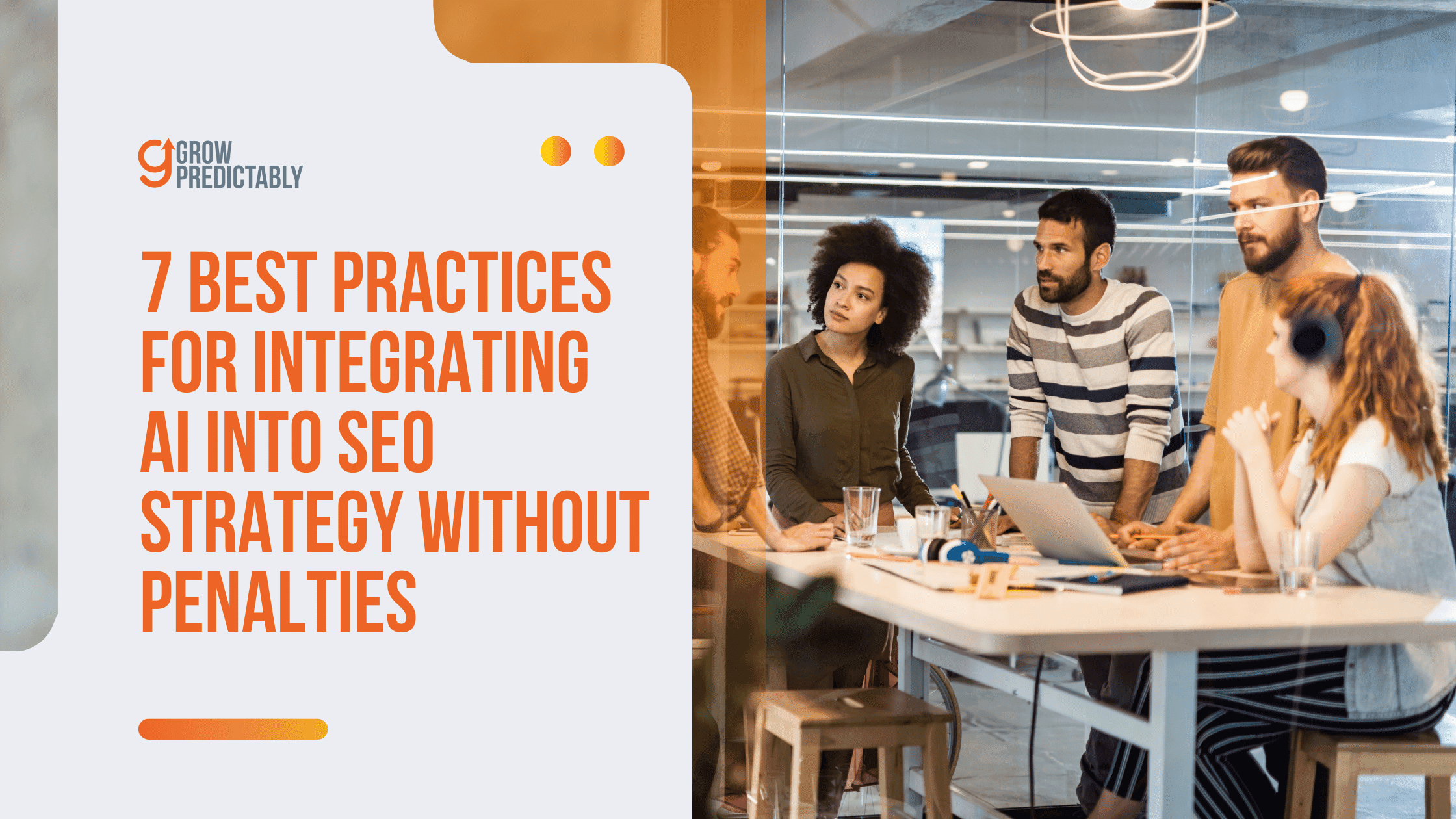
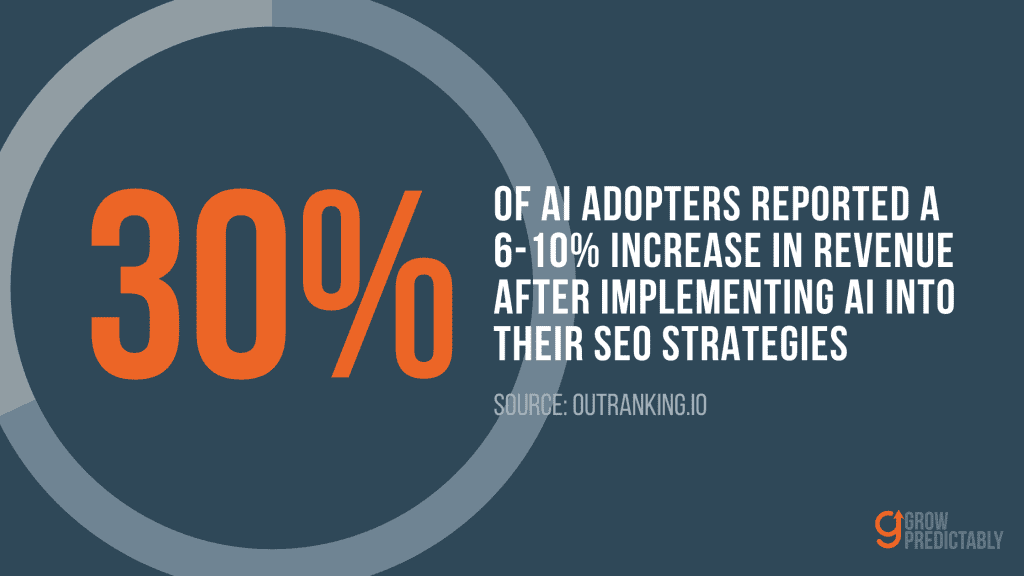


![Tired of Manual SEO? Try These 6 AI Tools for Instant Site Audits & Analysis [2026]](https://growpredictably.com/wp-content/uploads/2024/07/AI-Tools-768x432.png)
